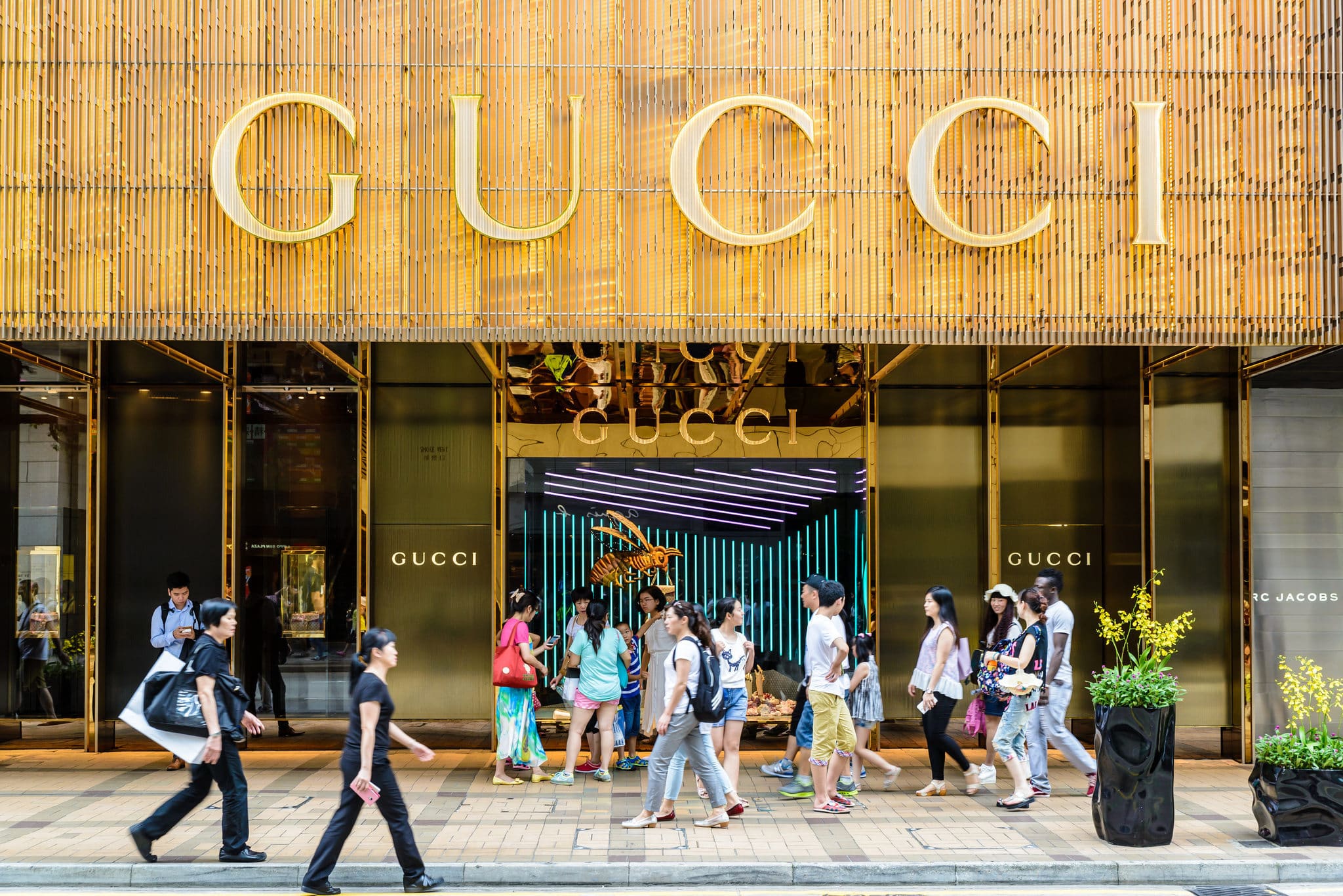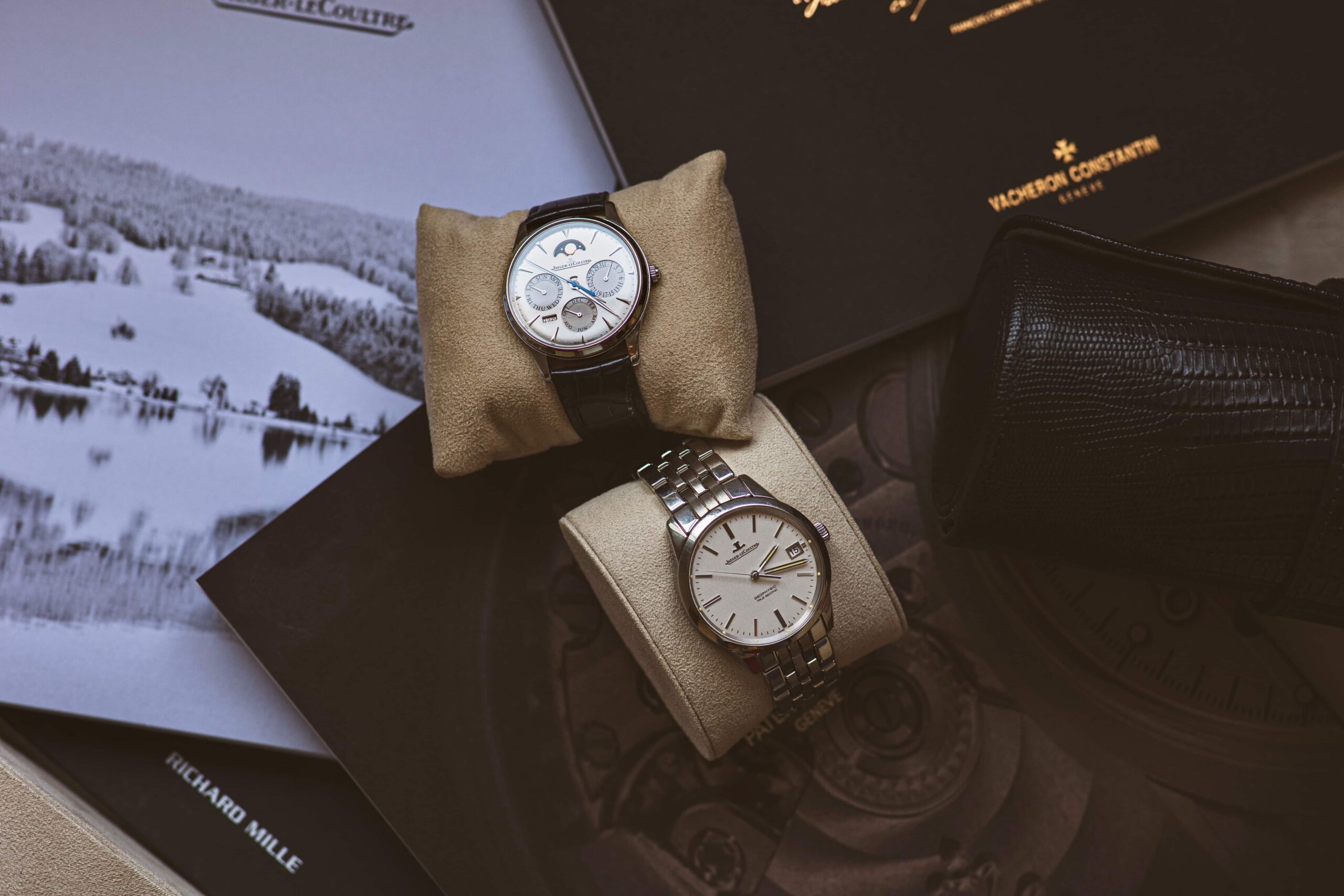[vc_row njt-role=”people-in-the-roles” njt-role-user-roles=”administrator,editor,author,armember”][vc_column][vc_column_text]
According to Morgan Stanley, the recovery in luxury goods spending is well underway in China. The outperformance of groups like LVMH and Richemont is proof of this. Chinese buyers are changing their consumption habits and are expected to account for 60% of total luxury goods spending growth by 2030.
In a note released after returning from a trip to China, U.S. bank Morgan Stanley said demand for high-end products is expected to be boosted by 20 percent in 2023. Longer term, the Chinese are expected to account for 60 percent of total personal luxury spending growth through 2030.
“The recovery in luxury goods spending is on track in China despite a weaker than expected recovery in consumer spending.”
“Based on” their “discussions in China”, the authors thus expect “an imminent and dramatic acceleration in luxury brand marketing spending in China.”
However, it is in Europe, where prices can be 30% lower than in China, that purchases could be most significant.
Disparate performance
“Divergent performance persists in the luxury sector in China”, Morgan Stanley further emphasizes.
The bank says Louis Vuitton, Dior, Hermès, Loro Piana, Brunello Cucinelli, Moncler and Chanel “are experiencing bullish brand momentum and are clearly outperforming the luxury space, thanks to the resilience of high-net-worth individuals (while factors such as persistently high youth unemployment are impacting middle-income consumer sentiment).”
According to Morgan Stanley, this implies that the industry’s growth is driven by increased spending per existing Chinese customer, not just new customer recruitment. However, the banking institution notes that the market’s increasing bias toward ultra-high-end brands is also a key driver of this growth.
“From the feedback we gathered on the trip, the divergence in performance seems to depend less on style and more on brand positioning.”
Chinese consumer loyalty
While Vuitton and Chanel were identified as the year’s top performers, the outperformance of a number of more discreet brands, such as Hermès, Loro Piana and Brunello Cucinelli, appears to be driven primarily by Chinese demand.
Several mall and luxury industry operators said they have observed a trend where middle-income consumers prefer to cut back on luxury spending in order to save for a piece from a high-end House such as Hermès.
Offsetting the US slowdown
Another key theme for the luxury sector in 2023 is whether the recovery in Chinese demand will be enough to offset the slowdown in Western spending. Analysts expect U.S. consumers to spend 1% less on luxury goods this year. A significant number given that the U.S. is the fastest growing country in spending over the 2019-2022 period.
The ultra-premiumization of the luxury market can also distort regional buying patterns. Chinese and Korean buyers are increasingly favoring higher-priced brands as status symbols, while reducing their spending on lower-priced brands favored by Western buyers.
Read also >LVMH reports strong rebound in China, slowdown in U.S. in first quarter
Featured photo : © Shutterstock[/vc_column_text][/vc_column][/vc_row][vc_row njt-role=”not-logged-in”][vc_column][vc_column_text]
According to Morgan Stanley, the recovery in luxury goods spending is well underway in China. The superperformance of groups like LVMH and Richemont is proof of this. Chinese buyers are changing their consumption habits and are expected to account for 60% of total luxury goods spending growth by 2030.
In a note released after returning from a trip to China, U.S. bank Morgan Stanley said demand for high-end products is expected to be boosted by 20 percent in 2023. Longer term, the Chinese are expected to account for 60 percent of total personal luxury spending growth through 2030.
“The recovery in luxury goods spending is on track in China despite a weaker than expected recovery in consumer spending.”
“Based on” their “discussions in China”, the authors thus expect “an imminent and dramatic acceleration in luxury brand marketing spending in China.”
However, it is in Europe, where prices can be 30% lower than in China, that purchases could be most significant.
Disparate performance
“Divergent performance persists in the luxury sector in China”, Morgan Stanley further emphasizes.
The bank says Louis Vuitton, Dior, Hermès, Loro Piana, Brunello Cucinelli, Moncler and Chanel “are experiencing bullish brand momentum and are clearly outperforming the luxury space, thanks to the resilience of high-net-worth individuals (while factors such as persistently high youth unemployment are impacting middle-income consumer sentiment).”
According to Morgan Stanley, this implies that the industry’s growth is driven by increased spending per existing Chinese customer, not just new customer recruitment. However, the banking institution notes that the market’s increasing bias toward ultra-high-end brands is also a key driver of this growth.
[…][/vc_column_text][vc_cta h2=”This article is reserved for subscribers.” h2_font_container=”tag:h2|font_size:16|text_align:left” h2_use_theme_fonts=”yes” h4=”Subscribe now !” h4_font_container=”tag:h2|font_size:32|text_align:left|line_height:bas” h4_use_theme_fonts=”yes” txt_align=”center” color=”black” add_button=”right” btn_title=”I SUBSCRIBE !” btn_color=”danger” btn_size=”lg” btn_align=”center” use_custom_fonts_h2=”true” use_custom_fonts_h4=”true” btn_button_block=”true” btn_custom_onclick=”true” btn_link=”url:https%3A%2F%2Fluxus-plus.com%2Fen%2Fsubscriptions-and-newsletter-special-offer-valid-until-september-30-2020-2-2%2F”]Get unlimited access to all articles and live a new reading experience, preview contents, exclusive newsletters…
Already have an account ? Please log in.[/vc_cta][vc_column_text]Featured photo : © Shutterstock[/vc_column_text][/vc_column][/vc_row][vc_row njt-role=”people-in-the-roles” njt-role-user-roles=”subscriber,customer”][vc_column][vc_column_text]
According to Morgan Stanley, the recovery in luxury goods spending is well underway in China. The superperformance of groups like LVMH and Richemont is proof of this. Chinese buyers are changing their consumption habits and are expected to account for 60% of total luxury goods spending growth by 2030.
In a note released after returning from a trip to China, U.S. bank Morgan Stanley said demand for high-end products is expected to be boosted by 20 percent in 2023. Longer term, the Chinese are expected to account for 60 percent of total personal luxury spending growth through 2030.
“The recovery in luxury goods spending is on track in China despite a weaker than expected recovery in consumer spending.”
“Based on” their “discussions in China”, the authors thus expect “an imminent and dramatic acceleration in luxury brand marketing spending in China.”
However, it is in Europe, where prices can be 30% lower than in China, that purchases could be most significant.
Disparate performance
“Divergent performance persists in the luxury sector in China”, Morgan Stanley further emphasizes.
The bank says Louis Vuitton, Dior, Hermès, Loro Piana, Brunello Cucinelli, Moncler and Chanel “are experiencing bullish brand momentum and are clearly outperforming the luxury space, thanks to the resilience of high-net-worth individuals (while factors such as persistently high youth unemployment are impacting middle-income consumer sentiment).”
According to Morgan Stanley, this implies that the industry’s growth is driven by increased spending per existing Chinese customer, not just new customer recruitment. However, the banking institution notes that the market’s increasing bias toward ultra-high-end brands is also a key driver of this growth.
[…][/vc_column_text][vc_cta h2=”This article is reserved for subscribers.” h2_font_container=”tag:h2|font_size:16|text_align:left” h2_use_theme_fonts=”yes” h4=”Subscribe now !” h4_font_container=”tag:h2|font_size:32|text_align:left|line_height:bas” h4_use_theme_fonts=”yes” txt_align=”center” color=”black” add_button=”right” btn_title=”I SUBSCRIBE !” btn_color=”danger” btn_size=”lg” btn_align=”center” use_custom_fonts_h2=”true” use_custom_fonts_h4=”true” btn_button_block=”true” btn_custom_onclick=”true” btn_link=”url:https%3A%2F%2Fluxus-plus.com%2Fen%2Fsubscriptions-and-newsletter-special-offer-valid-until-september-30-2020-2-2%2F”]Get unlimited access to all articles and live a new reading experience, preview contents, exclusive newsletters…
Already have an account ? Please log in.[/vc_cta][vc_column_text]Featured photo : © Shutterstock[/vc_column_text][/vc_column][/vc_row][vc_row njt-role=”people-in-the-roles” njt-role-user-roles=”subscriber,customer”][vc_column][vc_column_text]








